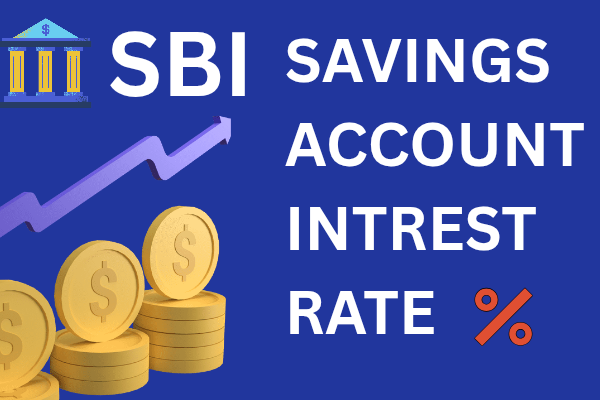Everyone has a savings account today. Be it a working person, a student or a housewife, everyone has a savings account, but very few people know about savings accounts, not everyone knows its rules and limits, which are necessary to follow.
1. What is a Savings Account
A savings account is a type of banking account that allows you to keep your money safely and is designed to earn interest on it. This account allows the account holder to deposit and withdraw money as needed. Most banks offer annual interest ranging from 2.5% to 4% on savings accounts.
2. Maximum deposit limit in savings account
There is no fixed limit on savings account in India, but if you deposit and withdraw a large amount of money then the bank starts tracking your account and information is sent to the Income Tax Department by the bank about where so much money is coming from, due to which your account can be closed.
According to Income Tax and RBI
If ₹10 lakh or more cash is deposited in a savings account in a year, then the bank has to be informed about it. Where did this money come from? If you have sold a farm or a property, then you can show that.
If there is a transaction of more than ₹50 lakh in a year (deposit + withdrawal), then that also comes under the purview of the Income Tax Department. Therefore, while depositing a large amount, you should know where this money came from and keep a clear record of that money.
3. UPI and online transaction limits
Transactions done through UPI (Unified Payments Interface) and net banking also have certain limits:
UPI transaction limit: Up to ₹1 lakh per day (₹2 lakh in some banks).
IMPS limit: Up to ₹2 lakh
NEFT / RTGS: There is no fixed upper limit, but banks can set their own limits.
4. What is the savings account limit?
In India, there isn’t a fixed maximum limit on the total balance you can hold in a savings account. However, there are restrictions on the amount of cash you can deposit into a savings account within a financial year. Specifically, the Income Tax Department requires banks to report cash deposits exceeding ₹10 lakh in a savings account during a financial year. Additionally, there are limits on single cash transactions, with a maximum of ₹2 lakh allowed in a single transaction or in aggregate from one person on a given day .
5. PAN Card Essentials and Big Transaction
If you want to deposit ₹50,000 or more in a savings account, it is mandatory to provide a PAN card. This ensures that your transaction is transparent and legitimate.
6. Precautions related to savings account limit
Understand the Income Tax and Bank Rules before depositing or withdrawing large amounts in your bank account repeatedly. If you are doing a large transaction, keep a written record of it. Use digital mode (NEFT, UPI, IMPS) more than cash—they are more secure and trackable. If you cross the free transaction limit, the bank may deduct additional charges.
7. Difference in the limit of different savings accounts
There are different types of savings accounts, such as:
- Regular Saving Account
- Salary account
- Zero Bank Account
- Senior citizens Account
- Woman Saving Account
- Student Account
The rules and limits of each account are different. For example, there is no compulsion to keep the minimum balance in the salary account, while the regular savings account.
8. What happens if you violate the savings account limit?
If you do not follow the prescribed limits of the savings account, you may have to pay a penalty from the bank as a result. And your account may be temporarily frozen. The Income Tax Department may question you. Therefore, it is important for you to follow the limits.
9. New technological initiative related to savings account
Nowadays, due to technological advancements in the banking sector, real-time tracking of account limits is possible. Bank mobile apps and netbanking show details of all transactions, balance, and limit alerts.
10. Conclusion
A savings account is a simple but important banking product that helps you keep your savings safe and earn interest on it. But it is important to understand the limits, terms and conditions associated with it. To be an informed account holder, you must have a thorough knowledge of savings account limits such as minimum balance, transaction limits, cash deposit and withdrawal limits, and income tax rules. This will not only help you save on bank charges but will also protect you from legal complications in the future.












